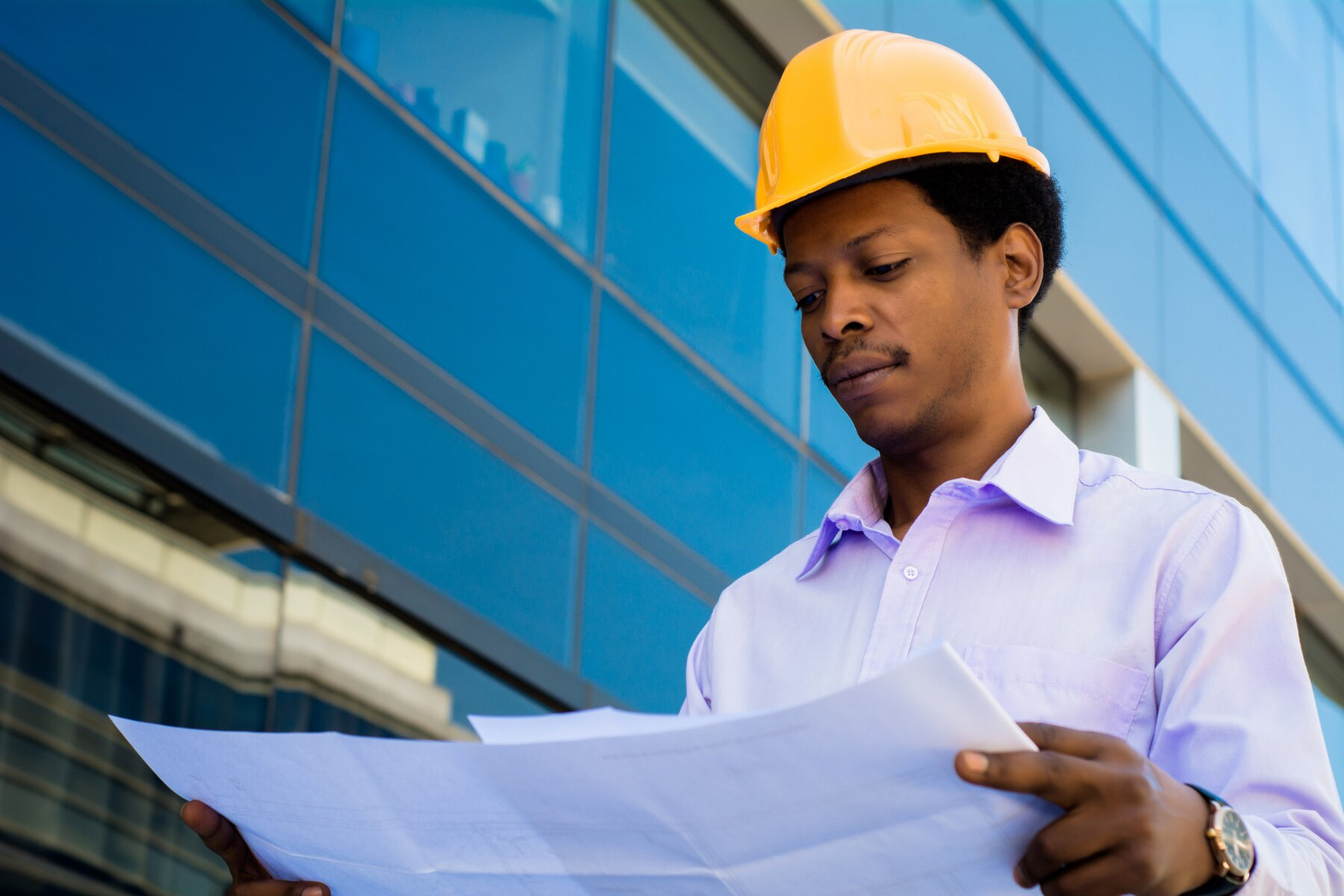Construction is a complex activity that involves a lot of planning, designing, and execution. One of the preliminary stages in construction is preconstruction.
It is a crucial phase that lays the foundation for a successful construction project. Preconstruction involves all the activities that take place before the actual construction starts.
These activities include planning, budgeting, and design development. In this blog post, we will discuss what construction is, the importance of preconstruction, and the process involved in preconstruction.

View Our Work
Evergreen Place: Pegasus Senior Living
The project included renovations of common areas, painting, and installing new carpets, and a fully remodeled dining room completed at night to not disrupt the resident’s daily lives. Eleven resident rooms were remodeled with new millwork, lights, paint, trim, base,...
Cardinal Cushing Centers
South Coast Improvement Company was hired to provide tenant improvements at the Cardinal Cushing Centers Group Residence. This fast-paced 22-week, construction project entailed construction of a single-family-style residence. We razed the existing structure on site...
Understanding the Complex Process of Construction
The construction process is an intricate and multi-dimensional activity that involves careful planning, precise execution, and effective management. It involves various processes, such as site preparation, design, procurement, construction, and post-construction activities.
To gain a deeper understanding of how the construction process works, we must delve into the different stages and steps involved in the creation of a building or structure.
Pre Construction Phase
The pre construction phase is the crucial part of any construction project. It involves project planning, designing, and setting up the administrative and logistical structures required for the project.
Preparing the site, securing permits and approvals and all documents related to the physical job site, finalizing project design, and sourcing project materials and labor are all part of this phase. The aim of this phase is to lay the groundwork for the project’s success.
Construction Phase
The construction phase involves the actual moment physical construction begins of the building or structure. It includes site preparation, excavation, laying of foundations, structural work, plumbing, electrical, finishing work, and landscaping.
This phase is where the actual construction takes shape, and it is essential to manage it well to ensure timely and successful project completion. With successful construction project management, there will be quick project turnover and no costly delays!
Post Construction Phase
The post construction phase involves project handover and closeout. It ensures that all contractual obligations, warranties, and post-construction concerns are addressed.
This phase requires careful management and attention to detail since any unresolved issues can have significant legal and financial implications. The physical construction ends, finally!
Key Players in Construction
The construction process involves a wide range of stakeholders, from developers and property owners to architects, engineers, general contractors, and subcontractors.
Each of these players has a specific role to play in the construction process to ensure that the project is completed successfully.
Challenges and Opportunities
Even with careful planning and management, the construction process can be challenging. It requires dealing with multiple stakeholders, complex legal and regulatory frameworks, and tight timelines.
However, it also provides opportunities for innovation, collaboration, and creativity. The construction process can be an exciting and rewarding endeavor, providing opportunities for talented individuals to create beautiful and functional structures.

The Ins and Outs of Construction Projects
Anyone who has ever gone through or undergone any construction project knows what a daunting process it can be. From planning and design to execution and finishing touches, there are many steps involved in making your vision come to life.
Even with the help of professionals, it can be overwhelming. But understanding the construction process can make it less confusing and more manageable.
Step 1: Planning and Designing
Before any construction work can begin, planning is an essential step. It involves assessing and evaluating the site’s condition and determining the project’s viability.
After that, the designing process follows, which involves turning the project vision into reality. This step includes creating a structured layout, developing drawings, and consulting with architects and engineers.
Step 2: Obtaining Permits and Regulations
Both obtaining permits and complying with regulations are essential steps before you can begin the construction process.
Acquiring all permits and demonstrating compliance with all validity is crucial to the project’s legality and functionality. These permits and regulations are issued to ensure construction safety is paramount and that the structure meets the required building codes.
Step 3: Site Preparation and Foundation Construction
After securing all permits, the next step is to prepare the site for construction. This stage requires preparing the site, such as demolishing any existing structures, leveling the ground, and clearing facilities.
Once the site is leveled, the foundation construction begins. This stage entails creating the foundation of the project, whether it’s a basement, slab, or crawl space.
Step 4: Framing and Roofing
Once the foundation is laid, the framing process begins. During framing, the walls and roof structure are built, including installing joists, beams, studs, and other structural components.
The next step involves installing roofing and roof trusses. Roofing is a critical aspect of construction since it protects the internal structure against environmental factors such as rain and sunlight.
Step 5: Finishing Work
In this step, the construction is already up, and now it’s time to start and finish the finishing work. It involves installing electrical and plumbing systems, adding insulation, and finishing walls and ceilings.
Based on the project’s scope, painting, flooring, and cabinetry may still need to be installed.

A Deeper Understanding of Preconstruction
Preconstruction is the phase of the construction process that takes place before actual construction starts. It is a crucial part of the construction process that allows builders to plan and budget accurately. Preconstruction is vital to ensure the success of the project.
When you have a good preconstruction plan, it helps to mitigate any potential risks that might arise during the construction phase. This is when the permitting process, ordering of building materials, finding cost savings, cost estimation, and everything preliminary planning related takes place.
What Happens in a Preconstruction Meeting?
Preconstruction meetings are a crucial step in any construction project. Before the next phase begins, a team of professionals must gather to discuss the specifics of the project, including the scope of the work, the timeline, and the budget.
They’ll also develop a communication plan to make sure that everyone stays on the same page during the construction project. Multiple meetings will likely take place to get a better full project scope.
During these meetings the project team establishes clear project communication between everyone involved, from the general contractor to the project manager to the subcontractors.
The goal is to ensure that everyone has a full understanding of their roles and responsibilities, and that all potential problems are identified and addressed before construction begins.
Ultimately, a successful preconstruction meeting helps to lay the foundation for a successful project, ensuring that the project is completed on time, within budget, and to the satisfaction of all stakeholders. Any construction partner involved will be apart of the strategic plan taking place in these meetings.

Importance of the Pre Construction Phase
Investing in preconstruction planning ensures that you have a clear understanding of the project timeline, project budget, and design.
During the preconstruction phase, builders and contractors can come up with cost-effective ways to deliver the project on time and within budget. Project efficiency is most important.
Typically there is also a bidding process during this phase. Preconstruction can also help identify any challenges that the construction company might face during the construction phase.
They’ll also come up with a construction schedule. With this information, the team can come up with a plan to mitigate potential risks and plan for a successful construction project. They’ll also make a timeline for how long the construction project lasts.
Pre Construction Process
The pre construction process begins with the initial meeting between the builder and the client. During this meeting, the builder will discuss the project scope and get an understanding of the client’s needs. The builder will then develop a conceptual project budget based on the client’s needs.
Once the conceptual estimate is agreed upon, the builder will develop a more detailed estimate with a detailed breakdown of the costs. The builder will also develop a construction plan and schedule.
This includes everything from site preparation and excavation to framing, electrical, and plumbing work. The builder will also develop a project timeline and identify potential risks months ahead of time.

Collaboration in Preconstruction
Preconstruction is a collaborative process that involves the client, the builder, and the contractors. Contractors are brought in for their input during the design phase to ensure that the project is not only cost-effective but also feasible.
Collaboration creates a clear understanding of the goals and objectives of the project. It also ensures that all parties are working towards a common goal of project success.
Benefits of the Preconstruction Phase
The benefits of preconstruction are numerous. This stage of the construction process helps ensure that the project is delivered within budget and on time. It allows the client to understand the project better, thereby mitigating potential risks.
Preconstruction also helps create a more detailed construction plan, making it easier for the construction team to execute the project. The collaborative approach to preconstruction ensures that all parties are working towards a common goal and that the project is feasible.

Are You Looking For Construction Services?
With a diverse portfolio spanning from office buildings to assisted living facilities, South Coast Improvement Company brings a wealth of expertise to any project we take on.
Our commitment to safety is evident by our specialized building practices, ensuring the comfort and well-being of special needs residents and patients.
Plus, with resources and experience throughout the East Coast, we’re always fully prepared to tackle any job, no matter the market or location.
Services We Offer Include:
- Conceptual Development
- Design & Engineering
- Pre Construction Services
- Construction Services
- General Contracting
- Project Management
- Renovations
- Add-On Construction
- Interior/Exterior Finishing & Painting
- Carpentry Services
- Custom Millwork/Cabinetry

Conclusion
In conclusion, we can say that preconstruction is a critical stage of the construction process. It is a collaborative process that involves the client, the builder, and the contractors. The objective of preconstruction is to develop a clear understanding of the project, mitigate potential risks, and deliver the project within budget and on time.
Investing in preconstruction is the primary key to success in the construction industry. It is a cost-effective measure that can save a lot of time, money, and effort.
When all parties work together, preconstruction can create a solid foundation for the successful execution of the construction project.






